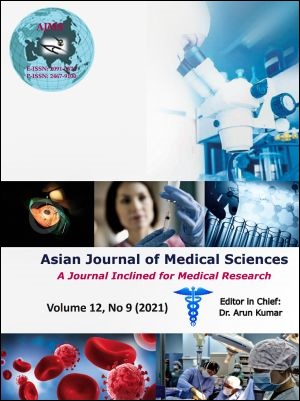Body weight perception, knowledge, practices and associated factors regarding weight reduction: A cross sectional study of treatment seeking obese young adults in Sri Lanka
Keywords:
Body weight perception, Knowledge, Weight reduction practices, Obesity, Young adultsAbstract
Background: Obesity and its’ comorbidities in young adults are emerging health concerns. Obesity is a well-known risk factor for developing cardiovascular diseases, type -2 diabetes, carcinomas, gallbladder disease, sleep apnea, osteoarthritis, and gynecological complications. Young adulthood is considered the best time period to introduce weight control interventions as the established lifestyle behaviors may persist throughout life.
Aims and Objectives: The present study assessed self-perception of body weight, knowledge and practices on obesity and weight reduction and their associated factors in a sample of treatment seeking obese young adults.
Materials and Methods: Two-hundred and sixty-one obese (BMI ≥ 25 kg m-2) young (18-35 years) adults attending an out-patient nutrition clinic of a teaching hospital in Sri Lanka were studied. An interviewer administered questionnaire was used to collect demographic data and information on body weight perception and, knowledge and practices on obesity and weight reduction. Weight, height and waist circumference were measured.
Results: The mean (±SD) BMI of the participants was 29.0 (±3.6) kg m-2. Only 16.1% precisely perceived themselves as ‘obese’ and increased BMI was only significant predictor of accurate body weight perception (OR=1.23; 95% CI=1.07-1.47; p=0.003). Only 49.0% reported obesity as a disease and 46.0 % and 27.2% that it predisposes to stroke and carcinoma respectively. Although 86.2% have attempted weight reduction, only 33.8% sought professional advice. Diet control was the most common weight reduction strategy (73.1%) and among them 33.3% combined with exercises. One fourth (n=56) relied on green tea for weight reduction and meal skipping was reported in 52.9%.
Conclusion: Significant body weight misperception was reported in lower BMI categories. The overall knowledge regarding obesity and weight reduction was satisfactory though not optimum. Diet control with or without physical exercises was the most popular method of weight reduction.
Downloads
Downloads
Published
How to Cite
Issue
Section
License
Copyright (c) 2021 Asian Journal of Medical Sciences

This work is licensed under a Creative Commons Attribution-NonCommercial 4.0 International License.
Authors who publish with this journal agree to the following terms:
- The journal holds copyright and publishes the work under a Creative Commons CC-BY-NC license that permits use, distribution and reprduction in any medium, provided the original work is properly cited and is not used for commercial purposes. The journal should be recognised as the original publisher of this work.
- Authors are able to enter into separate, additional contractual arrangements for the non-exclusive distribution of the journal's published version of the work (e.g., post it to an institutional repository or publish it in a book), with an acknowledgement of its initial publication in this journal.
- Authors are permitted and encouraged to post their work online (e.g., in institutional repositories or on their website) prior to and during the submission process, as it can lead to productive exchanges, as well as earlier and greater citation of published work (See The Effect of Open Access).




